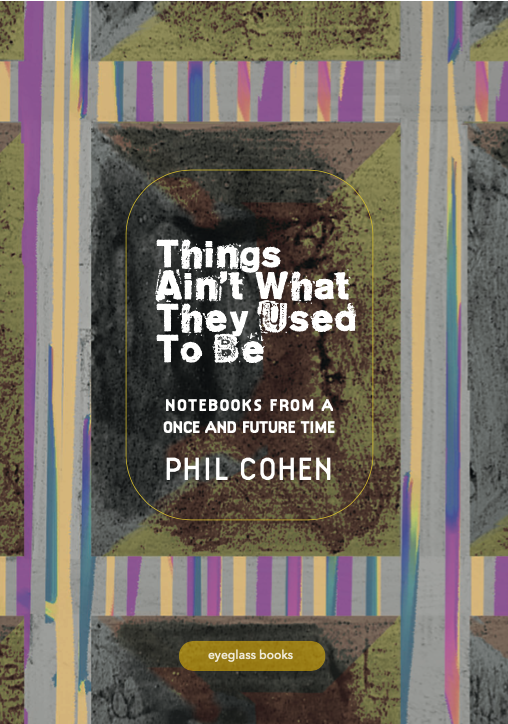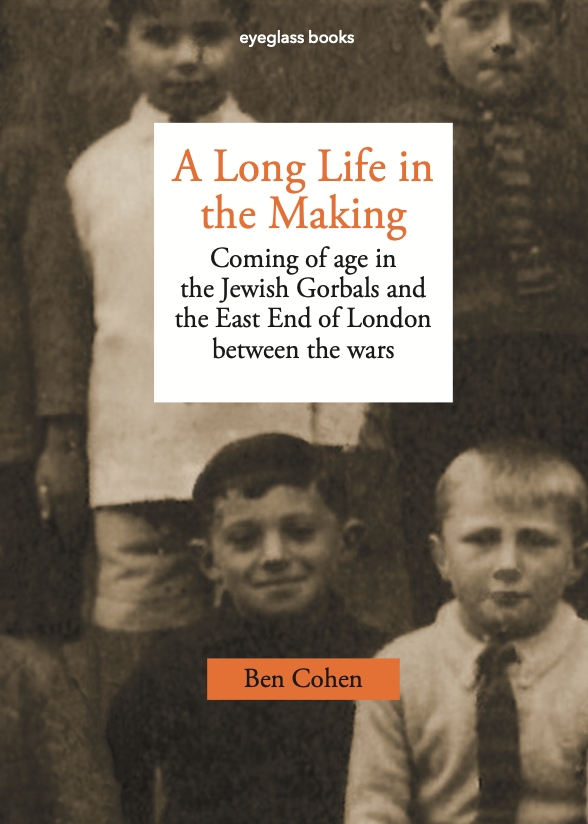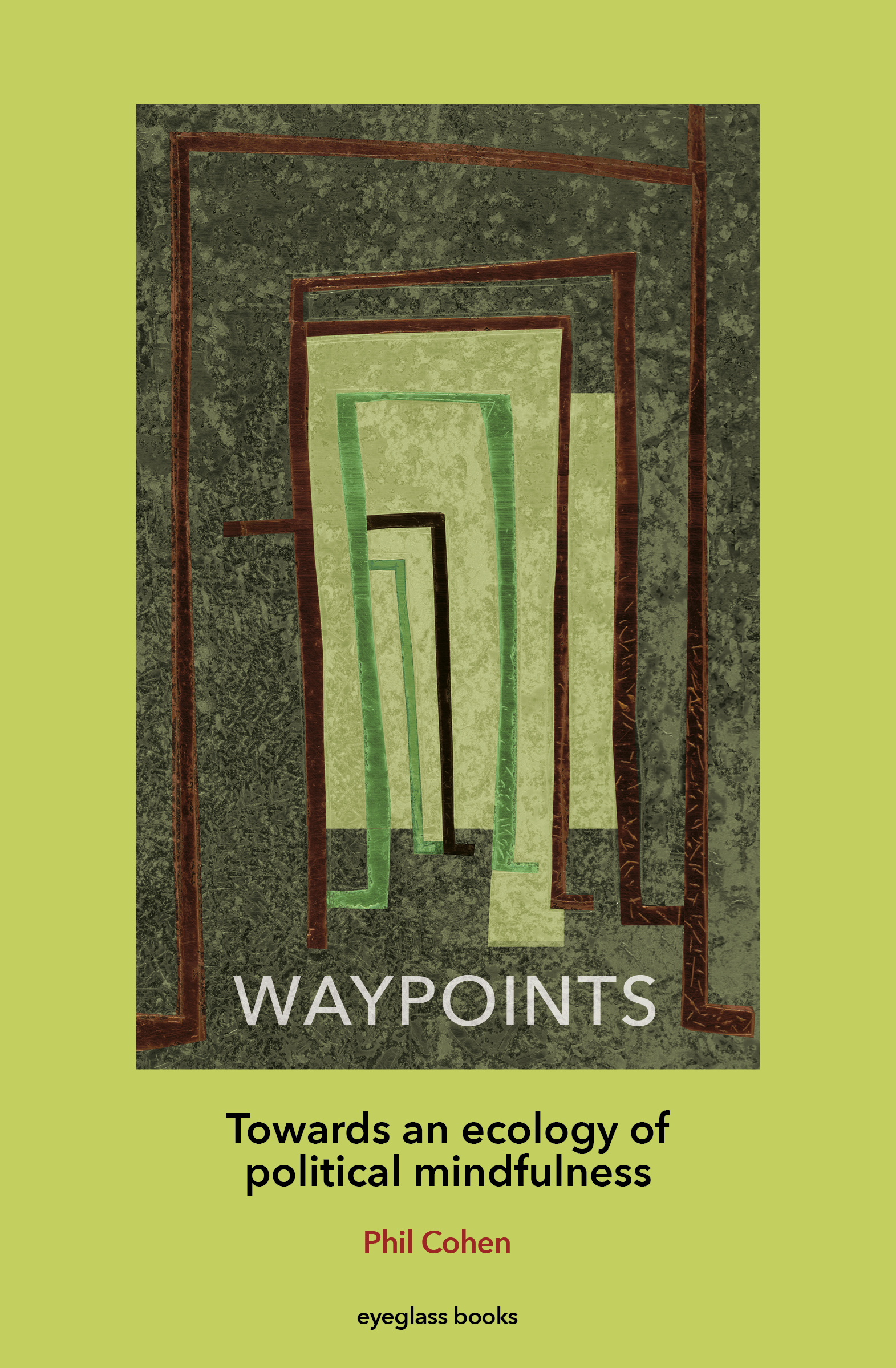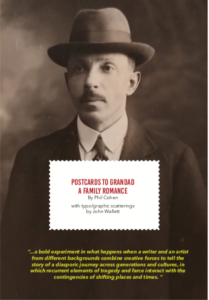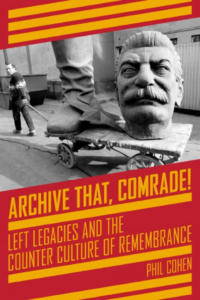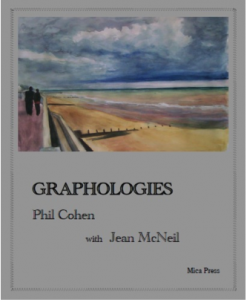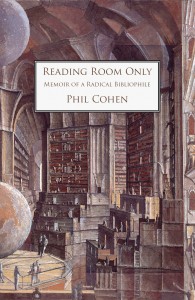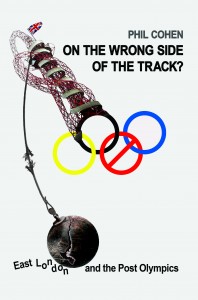Bad Journeys ? Some notes on Bloomsbury, Bohemia and reading subcultures
Talk given to the Bloomsbury Festival October 16th in conversation with Iain Sinclair
Bad journeys are made possible when and wherever we recognise that the map is not the territory. They are about exploring the gap or tension between our mental constructs of the world and the embodied space we inhabit as we find our way through it. And in that gap all kinds of possible worlds can take shape.
For most people a so called good journey happens when there is a perfect fit between map and territory, we traverse the city on autopilot, the sat nav works and nothing untoward happens. On a good journey, there is nothing to report. We follow what planners call, without irony, a line of desire, which means going purposefully and often compulsively, from A to B in the quickest most efficient way. Anything which interrupts that progress is regarded as bad.
For children the territory always and already precedes the map (contra Baudrillard) and their ideal journeys are, as they say, ‘well bad’. Left to their own devices, and unless they have been subjected to a traumatic encounter, children are inveterate explorers, builders of dens, discoverers of hiding places, colonisers of un-programmed space. They are fascinated by what happens on the street and in public places. Its a kind of spontaneous do it yourself urbanism. But, of course, kids are rarely left to their own devices, especially today in the era of stranger danger, when adult concerns for their safety have become paramount and placed all kinds of restrictions on their movements. So children have to steer a difficult line. Ronnie Laing used to tell a story about a boy who is seen walking round and round the block and when policeman asks him what he is doing, he replies that he is running away from home but his mum has forbidden him to cross the road.
My first walks around Bloomsbury were overdetermined by the fact the area in 1945 was heavily bomb scarred, and some of the local bombsites had been turned into impromptu adventure playgrounds. But for me the V2 bombs had been a traumatic experience and I avoided the bombsites although I was fascinated by the kids from a nearby council housing estate who were obviously having such a good time there. Instead my walks were with my dad, an energetic pedestrian, and concentrated on the Bloomsbury squares.
Navigating the local social geography was something of a tricky business. When I went to school in faraway Sloane square, my mum counselled me :‘say you are from Bloomsbury, not Euston’ if they ask where you’re from. According to my parents Bloomsbury was where people like us, professional middle class- lawyers, doctors, business people lived- artists and writers did’nt feature as part of their social landscape. Euston and especially Somers Town was where the working class lived. According to mum and dad, it was a dangerous no go area populated by street gangs, vagrants, drunks and people who would kidnap you as soon as look at you. And so, of course, it was where I staged my personal adventure stories, my bad journeys. Proletarian Bloomsbury hardly ever registers, certainly it is not on the literary map, but it has its own heroes. As he describes in his memoir, it is where Kenneth Williams, a pioneer of camp before it became fashionable, grew up in a tenement block, and his dad cut my hair, in his shop in Marchmont Street; Argyle Street school near Kings Cross where I was threatened to be sent if I didn’t do well at my prep school; the Foundling estate when the Bengali community established themselves. I never went to any of these places with my dad, indeed they were out of bounds and consequently terra incognita, but they featured prominently in my mental map of the area, marked ‘there be dragons’.
Between Bohemia and the Academy
Bloomsbury is where Bohemia and Academia interface, and sometimes, but not always interact. It has been where a lot of intellectuals and artists have lived and worked, – and not just the so called Bloomsberries. William Empson and Aldous Huxley lived on the fringes and so did Roy Campbell (who hated and satirised the Bloomsberries ). Its proximity to Fitzrovia, Covent Garden and Soho gave it a ready made connection to a variety of bohemian subcultures. At the same time the growth of London University populated it with critical mass of students and academics, which despite the demographic churn have given the area some social stability.
My sojourn in the bohemian Bloomsbury of the 1960’s is described in my memoir, Reading Room Only and bears an uncanny resemblance to the mlieu described by ‘ Roland Pemberton’ ( aka Henry Cohen) a decade earlier in his novel Scamp , which Iain Sinclair has recently rescued from the forgotten shelves of Bloomsbury’s bookshops and which is also published by Five Leaves.
Unlike the hero of Scamp my time in Bloomsbury was connected to a brief and thankfully uneventful career as a book thief , a career that was greatly facilitated by the fact that opera capes were a popular fashion at the time and provided an ideal cloak for my activities. The counter culture mindset was that capitalism was a rip off, property was theft and stealing equalled liberating. I only stole books I could sell because I didn’t want to collect. These were mainly legal and medical textbook which had a high resale price and the money I earned was partly to subsidise my book habit, which had grown as soon as I started to build a library.
The counter culture was about celebrating the sensuous immediacy of lived experience ;it involved the quest for some form of ekstasis whether through the natural highs of music, dance, sex, Eastern mysticism or poetry, or through psychedelic drugs. It was’nt anti-literature, or anti intellectual as such, after all it produced a whole lot of poets, writers and intellectuals, but it was against disembodied abstract knowledge as purveyed in Academia. It challenged the enclosed self reference bookish culture that could only make books from other boos. Finding an alternative life style was about NOT relating to the world second hand through books and the order they impose on experience. One of our slogans was from Blake -The road of excess leads to the Palace of Wisdom./ Prudence is a rich ugly old maid courted by Incapacity.
Unfortunately quite a lot of people who enlisted in the psychedelic colours found the road of excess led not to a palace of wisdom but to the mental hospital where R.D.Laing was on hand to tell them that they were prophets who had no honour in their own country of the mind. The high casualty rate is often ignored in accounts of the counter culture.
The counter culture was also against the kind of modernism that had been produced by and for a cultural elite- the modernism associated with the Bloomsberries. Our literary heroes were Blake, Godwin, Lautreamont, Rimbaud, Blaise Cendrars, Mac Orlan, Genet, Mailer, Camus, Ginsberg. Not Milton or Tennyson, Lytton Strachey, T.S.Eliot, John Wain, J.B Priestley, or Philip Larkin.
On the Road Again:the English Beats Revisited
The road was central to English beat subculture. The doss bag was a standard item of equipment, along with a guitar or mouth organ, a black leather jacket, long hair and a copy of ‘Howl’. There was a beat trail that went from London down to Brighton, then along the South coast to St Ives, which was a big summer scene. The beats would get casual jobs in hotels, restaurants and cafes in the seaside resorts, some would busk or sell stuff, including drugs, to make ends meet. If we could afford it we would share pads, but mostly we slept in derries, or if it was warm enough, on the beach, or in a tent. In St Ives the pill boxes and shelters on the cliffs were much favoured. The majority of Beats I met were from working class backgrounds. A lot of them came from the Midlands and the North. They used to go home and work in factories during the winter, it was their form of hibernation, and save up some money to take with them in the Spring. Hitching was the only way to travel and in those days a lot of people did it, including students. Students were despised as weekend beatniks, who were supported by their middle class families and just played at being ’on the road’. There were a few student drop outs like myself, but we were a definite minority. Some beats wrote poetry or songs, and would occasionally turn up to poetry and jazz gigs if they could afford it, and we generally subscribed to the notion of beat as hip and cool as opposed to straight or square.
Bloomsbury as a lieu de memoire
Roger Fry claimed to have been born and bred in Bloomsbury but he was talking about a country of the min d not a geographical area. The most important thing about Bloomsbury is that it never existed. As Leonard Woolf, its biographer put it ‘Bloomsbury was a largely imaginary group of people with largely imaginary objects and characteristics’. As such it does play a large – too large – part in the literary imaginary of Englishness. In terms of the history of ideas it provided for a time a point of intersection between literature, the visual arts, economics and the social sciences and a conduit for ideas that came from continental Europe and challenged the insularity of English intellectual life.The Bloomsberries were cosmopolitans, but they were elite cdosmopolitans. The group t was too exclusive to constitute a real artistic milieu or an intellectual movement ; it was more a coterie or salon. It was never part of a broader republic of English letters, but through its many intermediaries and its own forms of self publicising it did exert a large – too large -influence on it.
Each generation discovers its own Bloomsbury. In the 1960-70’s it was a pioneering experiment in sexual politics; in the 80’s it was a hotbed of aesthetic experimentalism, more recently its pacifist and rationalist attitudes, or the primacy accorded to conversation have been highlighted.
One of the defining moments in the history of the Bloomsberries was the formation of the Memoir Club in. It would meet regularly and members would read extracts from their diaries. They had decided at this very early stage that they were going to be famous enough, and their lives of sufficient public interest to begin work on their memoirs. In doing so they also set out to challenge the dominant norms of life story telling – what I have called the ‘whig interpretation’ of life history.
There is no shortage of memoirs and autobiographies written by artists, writers, intellectuals, political dissidents, bohemians, social deviants, rebels with or without a cause. By definition they have had more interesting than usual lives and may also have special skills which can be demonstrated in the telling of them. Philosophers are likely to talk about their lives philosophically, film makers to depict its mise scene cinematically, poets use their poetic gifts to capture its more fleeting and intimate moments. Many of these accounts trace the springs of creativity to particular existential situations, especially in childhood, sometime traumatic, sometimes nurturing, experiences which have set the narrator out on a life long quest for authenticity and self expression. This sense of having a special calling or gift is often a central theme in these accounts as is the apprenticeship to a particular discipline or craft.
The memoirs, diaries and letters published by the Bloomsberries have two thing in common: they are self conscious portraits of a shared culture and they are highly literary in tone and style. Cf, Constance Garnett’s Deceived by Kindness .
Increasingly though, no matter what your ‘calling’ , whether you are an artist or writer, a sportsperson or policeman, a civil servant or an entrepreneur, a criminal or a criminal lawyer, you are likely to describe your life course as a career, as so many incremental steps up a ladder of professional progress. In the so called network society, many people are as careerist in their choice of sexual partnerss as they are in their working lives. Everyone is supposed to be not only the authors of their own lives, but to apply rational calculation to its accounting, to estimate the costs and benefits of every move they make. Against this background it is left to the bohemian fringe to re-inscribe the original, wilder meaning of career – as in careering about .
Reading Room : refuge and prospect
The British Museum exerted a spectral and rather forbidding presence in my childhood landscape- it was a place to be circumnavigated rather than explored. Later as a teenage when I began to explore the literary hinterland of Bloomsbury, and visit local bookshops, it came to represent a promised land –the project of a universal library where the whole knowledge of the world could be stored and accessed. .
When I first became a reader in the BM, after I’d dropped out of Cambridge, it became a home from academic home, and a social club. Then when I became part of a media generated inferno surrounding the mass squats in central London in 68/9, it became a refuge from the political storm Finally when I re-entered academe as a free lance researcher it became simply a workplace.
But the reading room is also metaphor for a particular kind of inner mental space, a space where you can really think, where you can find within the inferno that which is not inferno, give it expression and make it endure (Calvino) As such it can take many forms, sometimes material, like the library or the study, sometimes symbolic, like what happens when you take a line of thought for a long cross-country walk. It is an intellectual equivalent to what athletes describe when they say they are ’in the zone.’
My intellectual journey took me across the frontiers of many disciplines to explore their common borderlands: philosophy, linguistics, anthropology, history, psychoanalysis, literature. was able to roam widely across these different field precisely because I was unconstrained by the Academy and its divisions of labour and also because the emergent paradigms of structuralism and post structuralism created certain common paradigms.
Reading as metaphor
Largely due to the influence of post structuralism, reading has become a general paradigm for understanding and engaging with the world. All the world’s a text and all the people in it merely paragraphs waiting to be deconstructed. Inter-textuality rules OK. This must be seen as part of a broader retreat of intellectuals from the hurly burly of public life and political struggle. In the decade after 1968, as the student radicals abandoned Marxism and its revolutionary rhetoric in favour of cultural and identity politics, as the transition was made from the commune to the common room, and political ambitions became sublimated in academic ones, reading became the key form of critical engagement with the world. New barricades were erected in the corridors of knowledge power, and the library rather than the street became the front line of confrontation.
This shift also corresponded to an actual development in capitalism – its cultural turn and the growth of a global knowledge economy of which universities were now a key part. Today we are living in a textually saturated culture, the forms of textuality have multiplied and diversified and are no long confined to the book. One of the conditions of the possibility of the textual turn is the way reading, as a cultural practice, has become disembodied ( we hardly every read aloud ), and socially disembedded, ( reading as a private not a public activity). It becomes form of abstract labour, an abstract intellectual operation transferable across many different platforms.
Of course there are counter movements- performance poetry, public readings, the proliferation of reading groups- but what has been lost in the dissemination of reading as a pervasive metaphor is the sense that the act of reading creates a margin of meaning that is not reducible to or deducible from the text, and does not simply mirror the received opinions of the professional literati. Reading has become instrumentalised and utilitarian– people read for professional purposes, to pass exams, increase their job prospects, improve their life chances, or simply to gather information. The death of the ‘general reader’ is everywhere in evidence, not least in the just in time production of second hand ideas packaged for the best sellers list. Instead we have a proliferation of specialised niche markets, with small independent publishers keeping the republic of letters alive. But if literature is ever going to become a poetry made by and for all, then it seems important to return to the reader the capacity to subvert the fixed, durable order of writing, in the name of a more ephemeral and subversive pleasure: that of the scavenger and the eclectic.
